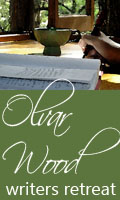|
“In poem after poem she would reflect on the fraught business of translating the silence of nature, of the dead,
of the rejected and the forgotten, into words.”
This journey through the landscapes that inspired the poetry and passion of Judith Wright is a delight. Capp’s capacity for landscape and its deeper meanings (previously demonstrated in Night Surfing and That Oceanic Feeling) together with her personal insights into Wright’s life and poetry deliver a rich and engaging read. Capp was seventeen when she met Wright and they maintained a friendship until the poet’s death in 2000. In some ways, My Blood’s Country is Capp’s story, too, Wright providing considerable inspiration for her own writing life.
Wright’s life and work were shaped by the three landscapes in which she lived: the tablelands of New England, Mount Tamborine, in the Gold Coast Hinterland and Mongarlowe, near Braidwood. As Capp travels though these places, most of which she had only imagined through Wright’s poetry, she discusses the poems and events they inspired.
My Blood’s Country reminds us of Wright’s influence on the development of Australian literature as well as the conservation movement. Required reading for lovers of literature and landscape.
“I used to tell people I was a foster child even though I was the only one in our home not fostered.”
This first novel from Jon Bauer has been widely reviewed, with almost unreservedly glowing praise. The author, formerly a resident of the UK, is the recipient of an Australian Distinguished Talent visa.
Narrated alternately by an eight-year old and the twenty-eight year old man he will become, Rocks in the Belly is a dark tale of a family’s deconstruction. A boy’s mother fosters other children, forming a strong bond with one in particular: Robert. The boy’s endearing but passive father tries to keeps things even, but the boy’s jealousy escalates into serious behavioural problems. It does not end well. As a damaged adult, he comes home to care for his dying mother. Both he and his mother struggle to forgive each other and face the truth about their past.
The childhood voice, in particular, is strong and compelling. The impact of fostering on birth children is a tough issue, and one well worth exploring. Rocks in the Belly certainly highlights the potential for damage and the impact of that damage. The moment where it all went wrong is revealed too early for me (although all the details do not come until much later), and although its characters are well-drawn and convincing, I found myself struggling to warm to Rocks in the Belly. The adult protagonist’s sexism and brutality were difficult to forgive, despite the circumstances. Moments some reviewers have found humorous – such as the boy placing the family cat under a hot shower, or in the washing machine – I found disturbing. Nonetheless, this is a great example of writing deep from a character’s point of view, and of resisting the urge to make your main characters likeable.
“The reader is my companion.” (Jeanette Winterson)
This book will need no introduction for fans of the ABC radio’s The Book Show. Koval has, for many years now, been interviewing some of the best writers from around the world, providing fascinating insights their writing lives and personalities.
This volume contains 28 interviews, including with Jeanette Winterson, A.S. Byatt, Barry Lopez, David Malouf, John Banville, John le Carré, and Toni Morrison. While they are not quite up to the standard of the famous Paris Interview series, Koval draws out a wealth of fascinating material. Gore Vidal’s wit and personal insight into the Timothy McVeigh case, with whom he corresponded while McVeigh was in prison (apparently ‘far better written than anything in the New York Times’) are a highlight. Some of the most moving interviews are with authors who passed away shortly after the interview, like Judith Wright and Joseph Heller.
Those with Koval’s previous volume, Tasting Life Twice (2005), already on their shelves will be disappointed to find 20 interviews duplicated here (of the 28 included). This seems a strange decision given the number of new interviews Ramona has conducted in the last five years, but perhaps augurs well for another volume soon.
A wonderful book for dipping into, this is must have for all writers and passionate readers.
issue 10:03 | archives by category | archives by author
|


